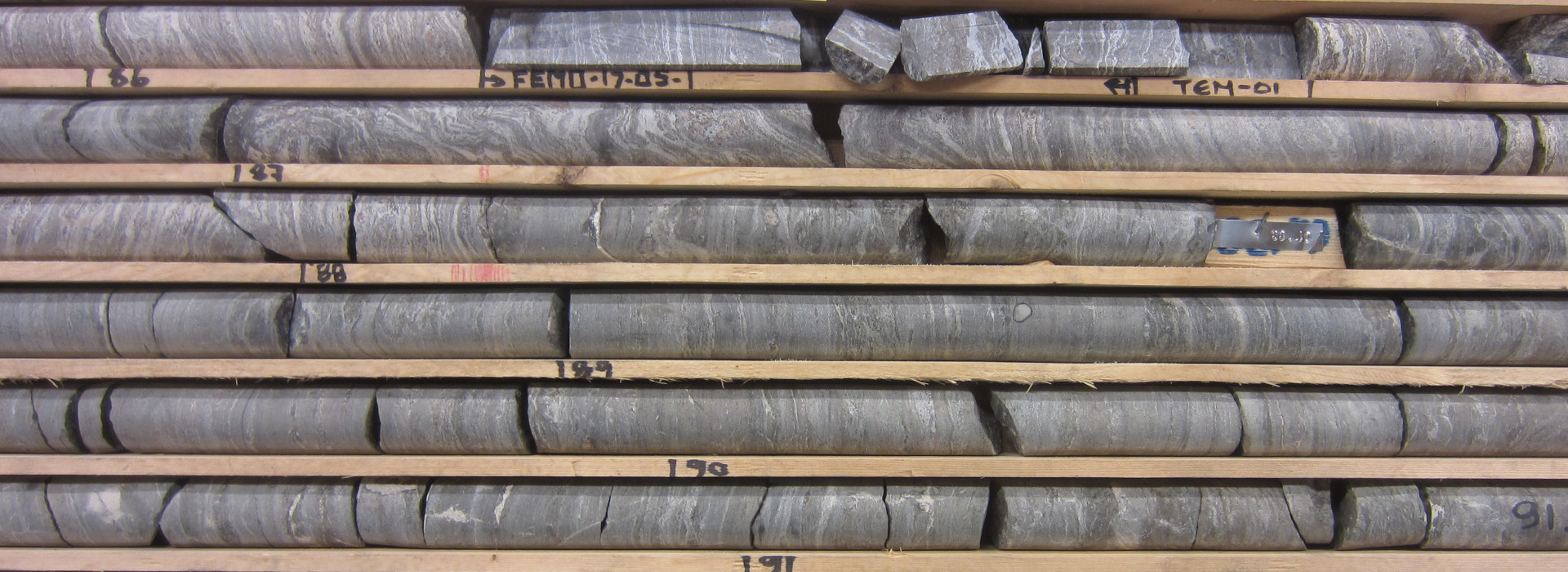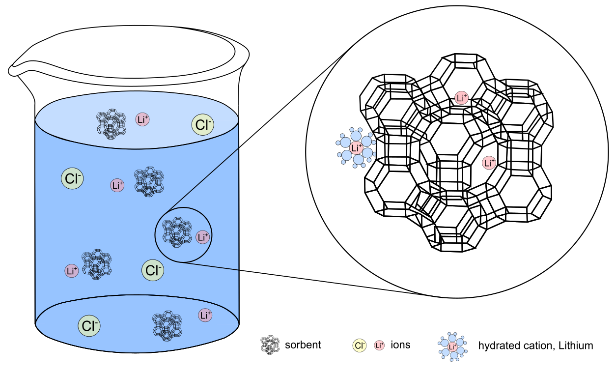Selective lithium extraction from geothermal brines of the Upper Rhine Graben and the North German Basin by sorption
- Betreuung:
- Bearbeitung:Rebekka Reich
Lithium is an important compound in several industrial applications and is mostly found in lithium ion batteries (LIBs), ceramics and glass. In the course of the energy transition in Germany and the increasing demand for renewable energies and e-mobility, lithium consumption in LIBs has already increased by 34 % between the years 2015 and 2020. Conventional lithium deposits are hosted in pegmatites, sedimentary rocks and brines (i.e., salt lakes and salars) comprising 25 - 26 %, 8 % and 59 - 66% of the world’s Li resources, respectively. Geothermal brines in the Upper Rhine Graben and the North German Basin, Germany, comprise Li concentrations of up to 240 mg/L and resources of 2.7 Mt Li2CO3 representing potentially economically mineable Li deposits. The scope of our project is to extract Li from these high saline (i.e., TDS ~100 - 200 g/L) geothermal brines by sorption with new alternative sorbents. Therefore, we test different mineral sorbents and investigate the properties of the materials with respect to sorption capacity, kinetics, chemical stability, selectivity, structural effects of Li incorporation, and their applicability to geothermal brines. The analytical methods applied are XRF, XRD, SEM, DTA and ICP-OES. This research is part of the project UnLimited, which is funded by the German Federal Ministry for Economic Affairs and Energy (BMWi) and the Projektträger Jülich (PTJ) under Grant O3EE4023D.

